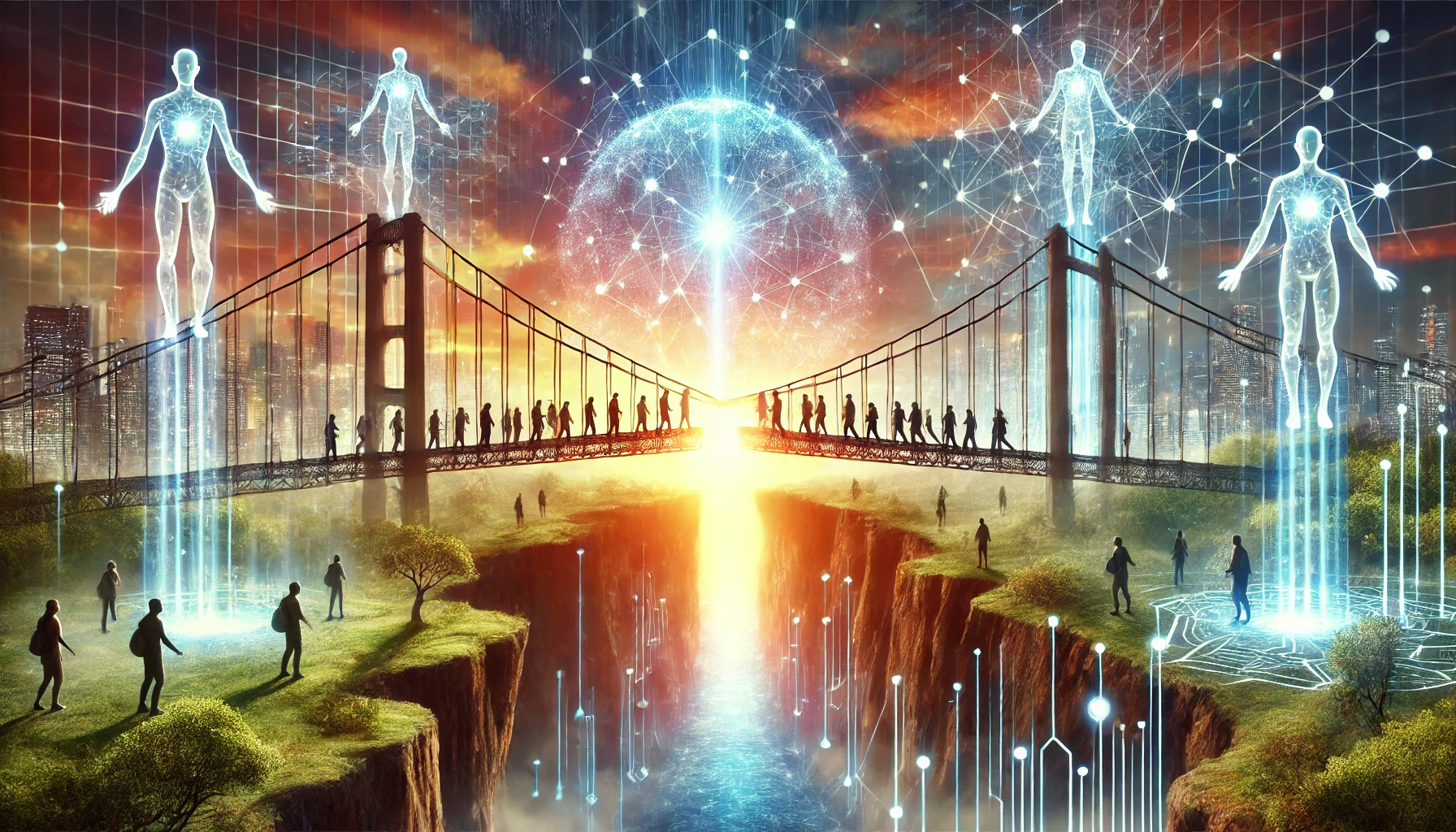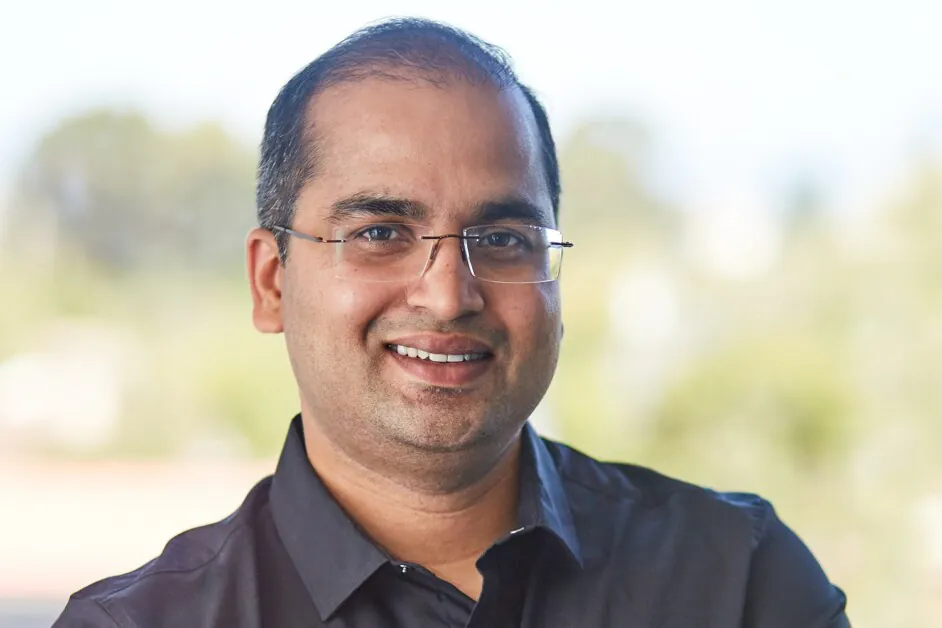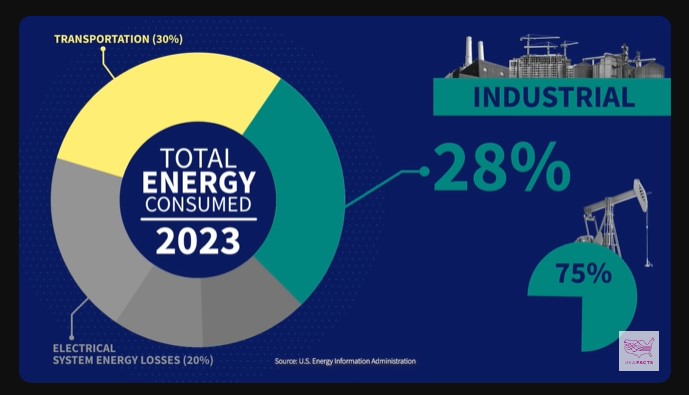Six Dumb Misconceptions About The Economy (that the Politicians Want You To Believe)
Well, it looks like we’re here in another US election year already. As Advanced Mustachians, we already know that the ongoing battle of Harris vs. Trump should not be consuming much of our time. Sure, we do our research and cast our votes but after that we move right on to focus on other things […]


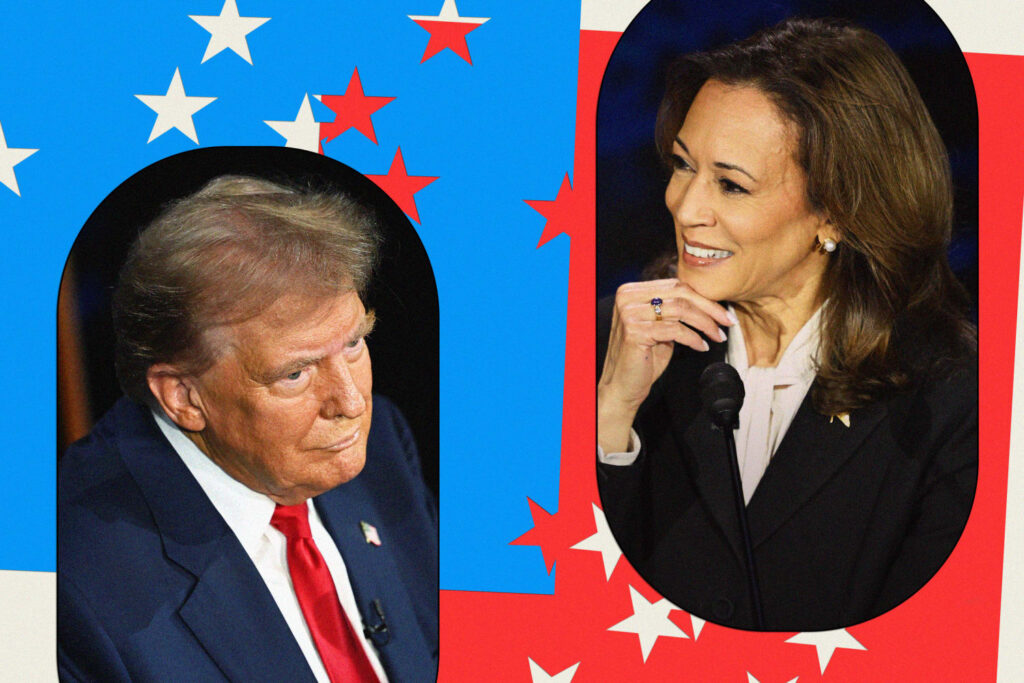
Well, it looks like we’re here in another US election year already.
As Advanced Mustachians, we already know that the ongoing battle of Harris vs. Trump should not be consuming much of our time. Sure, we do our research and cast our votes but after that we move right on to focus on other things within our own circle of control.
But out of all the things the politicians like to bicker about, there’s one area where MMM does need to set the record straight, and that area is of course money. Your money, the economy in general, and the overall wealth of the nation.
Politicians are already not known for being the sharpest tools in the shed when it comes to technical stuff like science, technology, or economics. But this year the discourse has become particularly dumb, as our candidates try to manipulate undecided voters in swing states with ideas that are based on irrational emotions rather than sound economic sense.
For one particularly funny example, you may have noticed that the competing party (Trump in this case) is attacking the incumbents (Biden/Harris) over the “bad economy.” When in fact the US economy is stronger than it has ever been, with the lowest unemployment we’ve ever seen as well.
It’s hard to imagine a better situation than we have right now, and in fact the recent bout of higher inflation is a sign that things have been going too well, and we needed to step on the brakes with the help of higher interest rates.
But somehow the people still seem to believe that we have a “bad” economy. Take a look at this Gallup poll showing that while most people (85%) are doing really well right now, they assume that it’s just their own good fortune – only 17% believe the economy is doing well.
This is mathematically impossible, because if most people are doing well, that’s the definition of a good economy! And suspiciously enough, this widespread wrongness correlates quite nicely with the rise of social media misinformation.
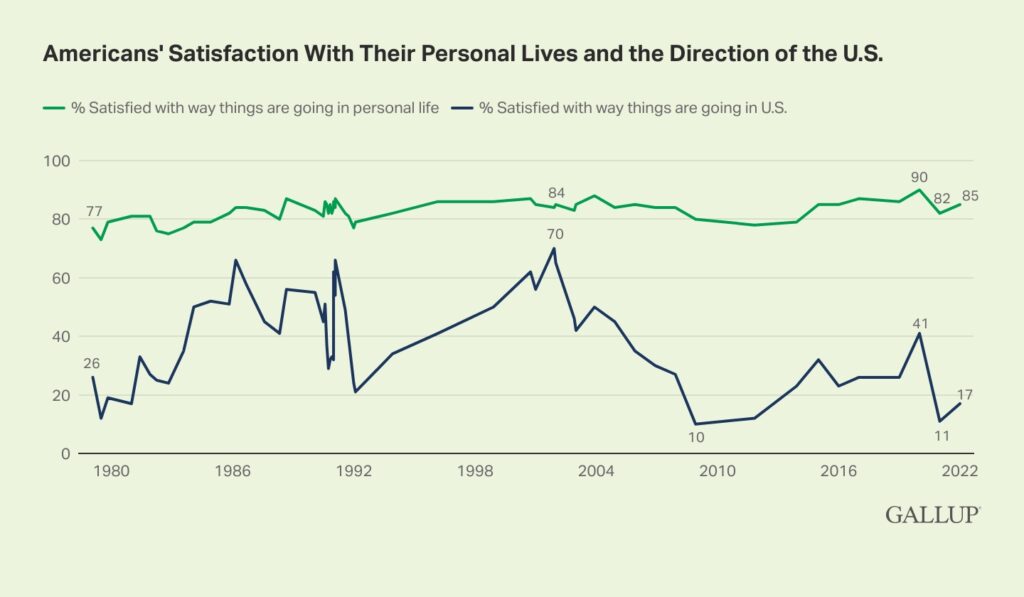
So the politicians and the news have been doing the opposite of what they should be doing in an ideal situation (sharing accurate information). And sure, we can always just ignore their speeches and go on with our lives. But when it comes to economics, knowledge is power (and money). The more accurately we understand how things really work, the wealthier we will all become.
So with all that in mind, I hereby present you with my list of the…
Top Dumb Things Politicians Want You To Believe About The Economy
1: The President Controls the Economy
If there’s a recession, the opposition party likes to blame it on the current president. If the economy is booming, the current president likes to give himself (or possibly soon herself) credit for all of that success. But really, the US economy is way too big – and thankfully way too free – for the president to control or really even influence all that strongly.
In reality, our economy is a gigantic machine which converts labor and materials into things like iPhones, hospitals and pumpkin pies. And although we’re the biggest economy at 26% of the planet, we are still heavily influenced by that much bigger 74% of economic activity that the other 7.6 billion people on Earth are busy producing everywhere else.
When we have our inevitable little boom and bust cycles, they are mostly caused by the normal cycle of irrational exuberance (and greed) like the 2007 housing boom, followed by brief periods of extreme fear and pessimism like the 2008-2012 financial and housing crash.
The government does play a role too, by setting tax rates and other rules. But the effects of these policies are usually so delayed and unpredictable, that you can’t draw a straight line between today’s president and today’s economy. In other words, the government does its best to adjust the rudder on our giant ship, but in the short term our economy lurches around on the waves and storms of the ocean.
2: The President Controls Interest Rates
This one is especially funny to me, as our candidates feign sympathy for the hard life of middle class Americans, who now face higher borrowing costs on their credit cards and car loans and mortgages. They claim they will fight to bring the interest rates down. Trump even goes as far as bullying our Federal Reserve board members (who can only do their jobs if we allow them to function as independent experts) and suggesting that he would take over the whole department, if elected.
The real story is that while monetary policy would be a terrible tool to leave in the hands of a sitting president (see Argentina), it does function as an excellent set of gas and brake pedals for the economy if used properly. When things slow down and unemployment gets too high, a cut to the interest rates will produce a boost in everything from new jobs to stock prices. But if things get too hot, you get rapid inflation which can mess up the system.
3: Inflation has Made Life Harder for Americans (and the President Can Magically Reverse it)
This line of reasoning is even dumber than the last one. For a couple of years after the Covid era, we had rapid inflation. It was caused by a rare combination of a goods shortage caused by things like factory closures and remote work, plentiful demand from government stimulus spending and low interest rates. These factors have since ironed themselves out, and inflation is back down to an ultra-low 2.4%.
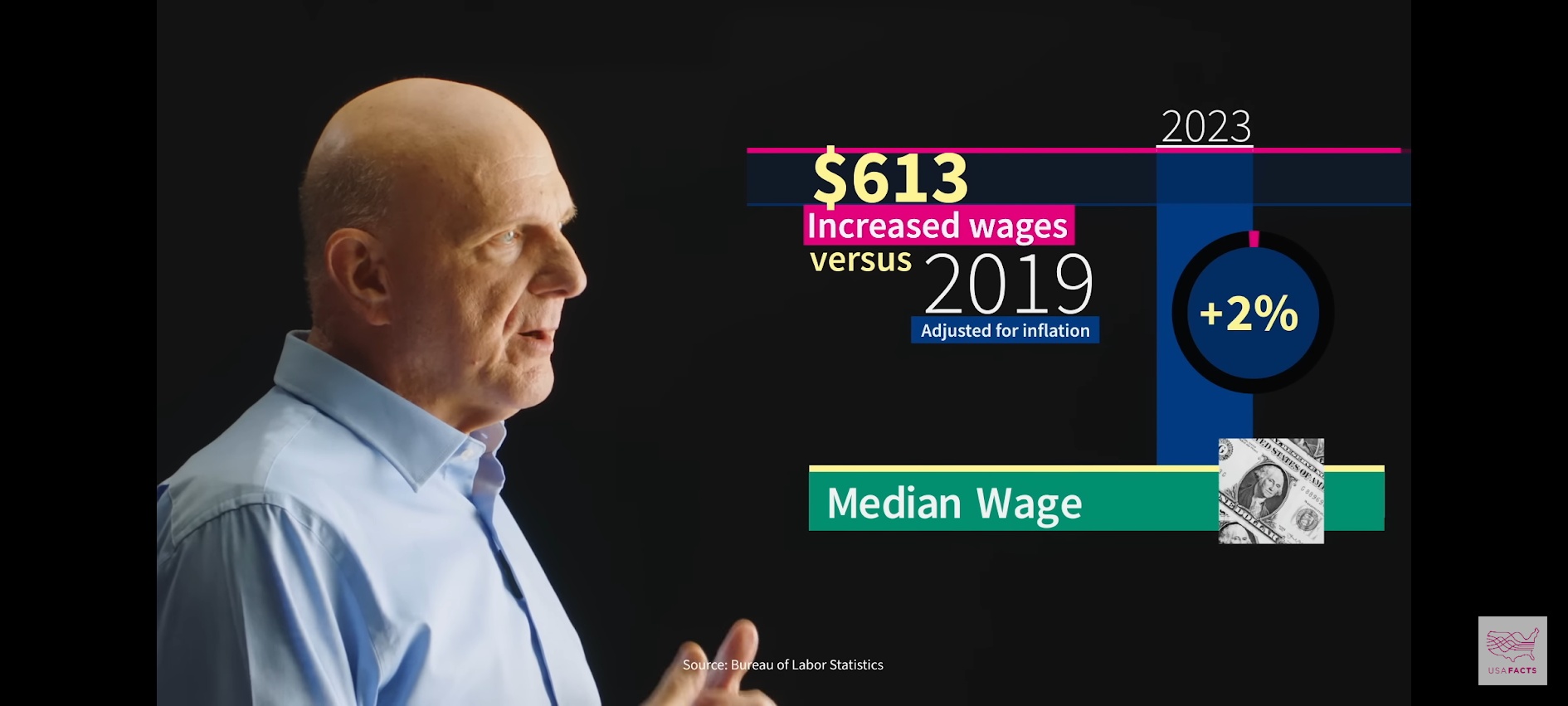
But most significantly, wages have still risen faster than inflation so we are all better off than before! Since 2019, overall prices are up 19% and our wages are up 21%. So even after all that inflation, we are still doing just fine. But the candidates are still bickering over inflation as if it’s an actual problem, and even worse promising to “bring prices back down”. And they’ve managed to convince the electorate that “higher wages and prices” is the same thing as “a bad economy”. Which is just plain wrong.
Bonus dumbness: politicians also occasionally blame “greedy corporations” for increasing prices to hoard profits. While price increases are totally acceptable in a market system (as a business owner you are free to set prices wherever you like), in reality it doesn’t usually happen because our markets are too competitive. For example, a recent deep analysis from NPR showed that no, grocery stores haven’t made any windfall profit at all off of this recent bout of Covid-fueled inflation.
4: The President Controls Housing Prices
One important thing that has changed over the past ten years is that US house prices and rents have both risen much faster than general inflation and even wages. On the positive side, interest rates have also risen which tends to make houses feel more expensive and is supposed to help bring house prices down. But it hasn’t happened yet which means we have the double whammy of higher prices and higher interest costs for mortgage borrowers.
The dumb part is that our candidates are proposing things that would make the problem even worse, like subsidies for first-time homebuyers or schemes to reduce the interest rates. When really the solution is to increase the supply of housing, which I personally think will happen if we stop putting up roadblocks for homebuilders (myself included) to build housing.
Things like faster and cheaper permits, less onerous and expensive building codes, eliminating suburban-style zoning and setback and car parking rules, and changing laws so that NIMBYs no longer get any say over what other people do with their own land could all help reduce the cost of building a house by about 50%, quickly and permanently.
5: The President Controls Gas Prices, and They Are Currently “High” and We Want Them Lower
Ahh, gasoline! The most ridiculous of things to worry about and the fuel for many of MMM’s rants since 2011.
First of all, on an inflation-adjusted basis, gasoline is still about the same price as it was in 1950: in the $3-4 range per gallon, in today’s dollars.
Secondly, it is so cheap that even with our huge inefficient American vehicles, the average household is still only spending 2.5% of their disposable income on the stuff! (The funny part is that they spend many times more on the rest of the car ownership experience while thinking gas is the part that is expensive)
Third, gasoline has been obsolete for almost a decade now. You can get a used electric car for less than the price of a comparable used gas car, or if you’re a fancypants money waster like me, new EVs are also cheaper than their gas counterparts. You get a faster, nicer car that almost never needs maintenance OR gasoline, and save money.
So why are we even still talking about this antique fuel of a previous era? Why aren’t the candidates also arguing over the price of Kodak film or typewriters or fax machines?
6: The Economy is Something We Should Even Worry About
The funniest part about all this economic talk is that we’re focusing on the wrong thing. While hard work and business and advancing the frontiers of human knowledge are all fun things, the reality is that we passed the point of having “Enough” decades ago. When the American middle class complains about how hard we have it these days, it’s like a bunch of overfed people at a buffet wishing they could just have one more flavor of donuts stacked onto the table.
Yes, we have income and wealth inequality so that the rich tend to get richer more quickly. And yes, we should keep that in check with a somewhat progressive tax system because a more equal society tends to be a more peaceful and happy one.
But have you noticed that as the rich people get richer, they don’t get any happier? It’s because after you pass the point of “Enough”, adding more money doesn’t really help much.
And “Enough” is much more defined by your mindset (and your collection of life skills) than your paycheck. So if the politicians really cared about improving our happiness and wellbeing, they’d be preaching the Principles of Mustachianism rather than pandering to the specific requests of coal miners or billionaires.
But alas, winning an election is a very different thing than proposing stuff that is actually best for the country. And for that reason, we cast our votes for the best party and then tune back out until the next election.
Happy voting!
In the Comments: Has the election season been getting you down, pumping you up, or just giving you a thorough dose of “Meh”?
Further Reading/Watching:
While researching economic stats for this article, I came across a quirky but informative series of videos called USA Facts by none other than former Microsoft CEO Steve Ballmer. It seems that he had the same frustration as me: Americans are fighting over a bunch of opinions and misinformation without even bothering to look up the actual facts. So he made a well-produced series of videos that just share the facts without the baggage of political hype on top of them. I wish our politicians could do the same thing!
Bonus Podcast based on this article!
Thanks to the magic of AI, you can direct the wizardry within Google to generate a custom-made podcast on almost anything on the Internet. A reader just emailed me this take on this episode – remarkably human-like and even entertaining!
https://notebooklm.google.com/notebook/0e1d0af8-8888-466c-abe4-8b1da8986773/audio
What's Your Reaction?


















